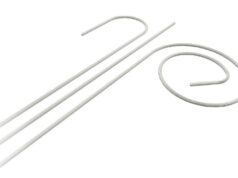
On 8 May, St Jude Medical announced the CE mark approval of its next-generation Ellipse and Assura portfolio of implantable cardioverter defibrillators (ICDs) and cardiac resynchronisation therapy defibrillators (CRT-Ds). According to a company release, the new portfolio is designed to lower the risk for lead abrasion and to ensure high voltage therapy delivery.
“The goal for this innovative portfolio of devices is to bring implantable defibrillation reliability and patient safety to the next level,” said Eric S Fain, president of the St Jude Medical Implantable Electronic Systems Division. “The new Ellipse ICD and Assura family of devices demonstrates St Jude Medical’s commitment to developing technologies that provide physicians with advanced patient management tools to mitigate the most common ICD lead complications, especially those that can lead to ineffective high voltage therapy delivery.”
The Ellipse and Assura family of devices feature the DynamicTx Over-Current Detection Algorithm, which automatically adjusts shocking configurations within the device to ensure the delivery of high-voltage therapy if an electrical short in one portion of the system were to occur. In addition, the next generation devices feature low friction coating on the device can, which has been demonstrated in testing to significantly reduce the friction between the device and leads. As such, the low friction coating is designed to reduce the risk for lead-to-can abrasion, the most common type of lead insulation failure in the industry.
These advanced technologies provide preventative and adaptive capabilities to address potential failures that can result in the inability to deliver high voltage therapy when needed, especially in systems using silicone-only insulated defibrillation leads, which are known to be at higher risk of abrasion.
“The annual rate of lead defects increases over time regardless of manufacturer and insulation failure accounts for 70% of lead failures in older leads,” said Johan Vijgen, director of electrophysiology at Jessa Hospitals in Hasselt, Belgium. “With important safety features designed to ensure successful delivery of high-voltage therapy, these new devices offer my patients a higher standard of care.”
The new devices also feature expanded protection against inappropriate and unnecessary shocks with SecureSense RV Lead Noise Discrimination, an algorithm that expands St Jude Medical ShockGuard Technology. SecureSense RV Lead Noise Discrimination differentiates lead noise (over-sensing of electrical signals) from true ventricular tachycardia (VT) or ventricular fibrillation (VF) episodes requiring therapy.












